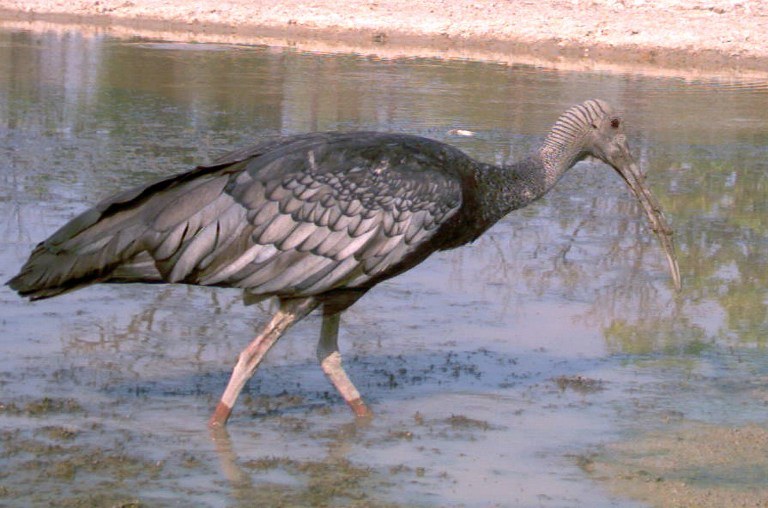SUMMARY
This is AI generated summarization, which may have errors. For context, always refer to the full article.

PHNOM PENH, Cambodia – Jubilant conservationists expressed hope Tuesday for the survival of the critically-endangered Giant Ibis after a nest of the bird species was discovered in a previously unknown habitat in northeastern Cambodia.
Habitat loss and poaching has pushed the Giant Ibis to the edge of extinction, with around only 345 of the reclusive creatures — distinctive for their bald heads and long beaks — left anywhere in the world, 90 percent of them in Cambodia.
A farmer in Cambodia’s Stung Treng province discovered the nesting site a few kilometers inland in the biodiverse Mekong Flooded Forest area last month, the World Wildlife Fund (WWF) said in a statement.
An inspection team from the WWF later saw an adult bird sitting on the nest with two eggs.
“The discovery of the Giant Ibis nest on the Mekong is extremely significant because it provides hope for the species’ survival,” said Sok Ko, Forestry Administration official and Bird Nest Project officer with WWF.
The Giant Ibis — or Thaumatibis gigantea — was listed on the Red list of the International Union for Conservation of Nature (IUCN) in 1994 as critically endangered, the group said, with its habitat limited to Cambodia, Laos and Vietnam.
“For Giant Ibis to survive … it is key to secure breeding groups in more places. This one nest is part of securing the future for the species,” Gerry Ryan, WWF’s Research Technical Advisor, told AFP.
The group warned that threats remain as the species’ lowland forest habitats continue to be drained and stripped for agriculture, while its eggs are sometimes poached by villagers.
But conservation efforts in the Mekong area where the nest was discovered have brought some reward, Ryan added.
“Giant Ibises don’t like to be disturbed and are very shy — they tend to live far from human settlements,” he said.
“The presence of Cambodia’s national bird is further proof that efforts in managing and conserving the area and its biodiversity are worthwhile and having an effect.” – Rappler.com
Add a comment
How does this make you feel?
There are no comments yet. Add your comment to start the conversation.